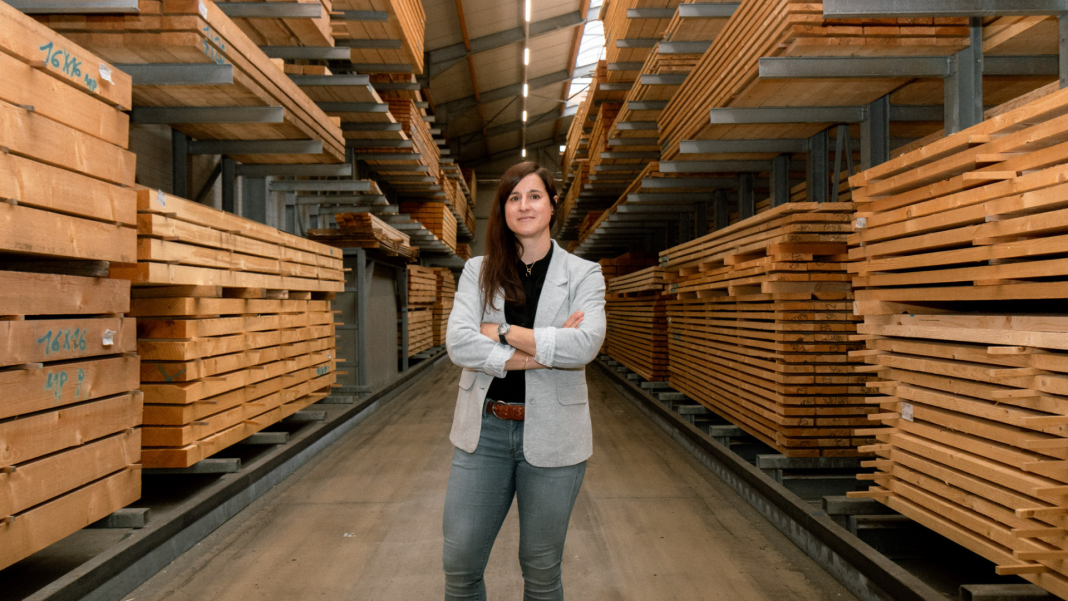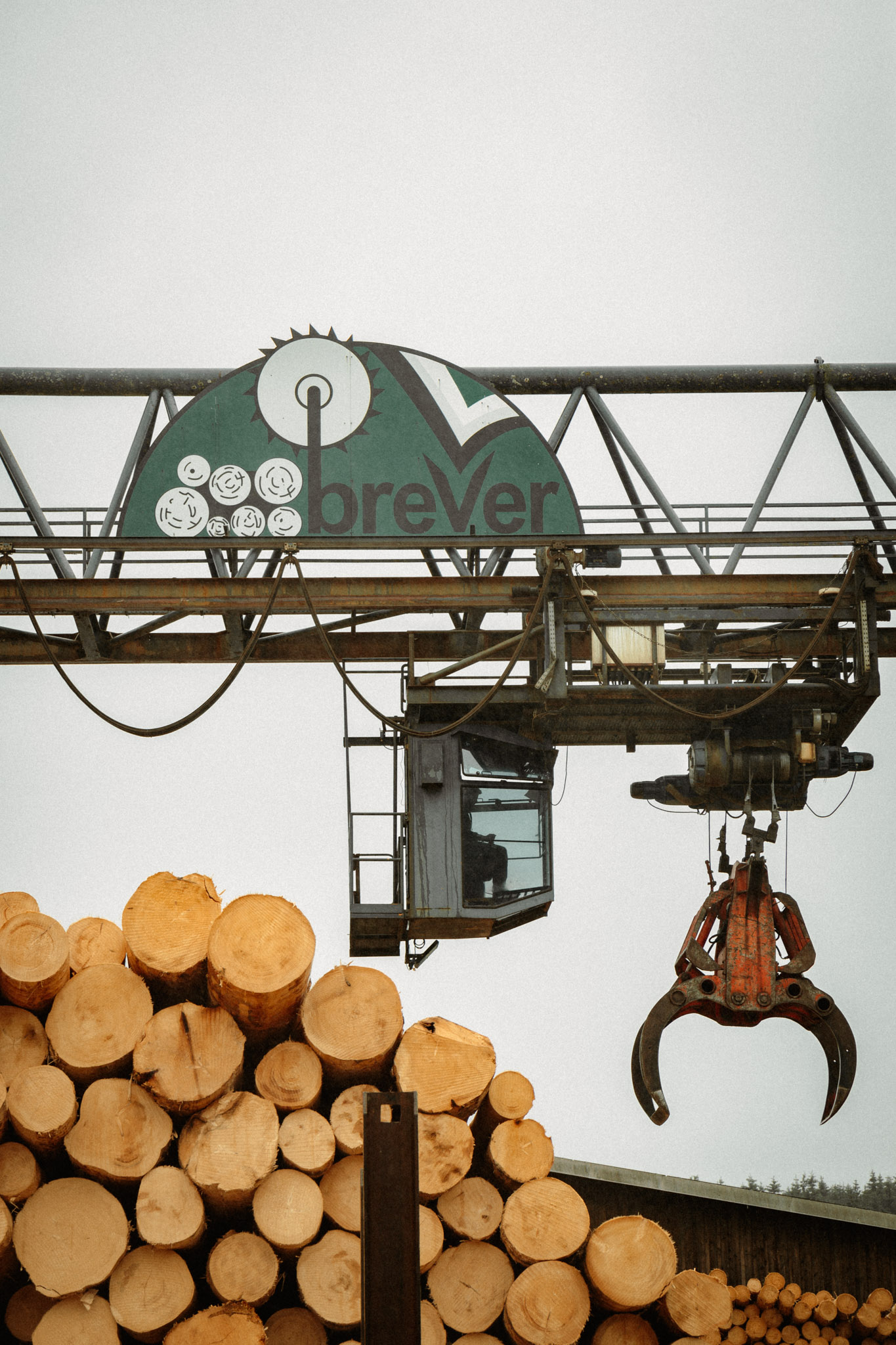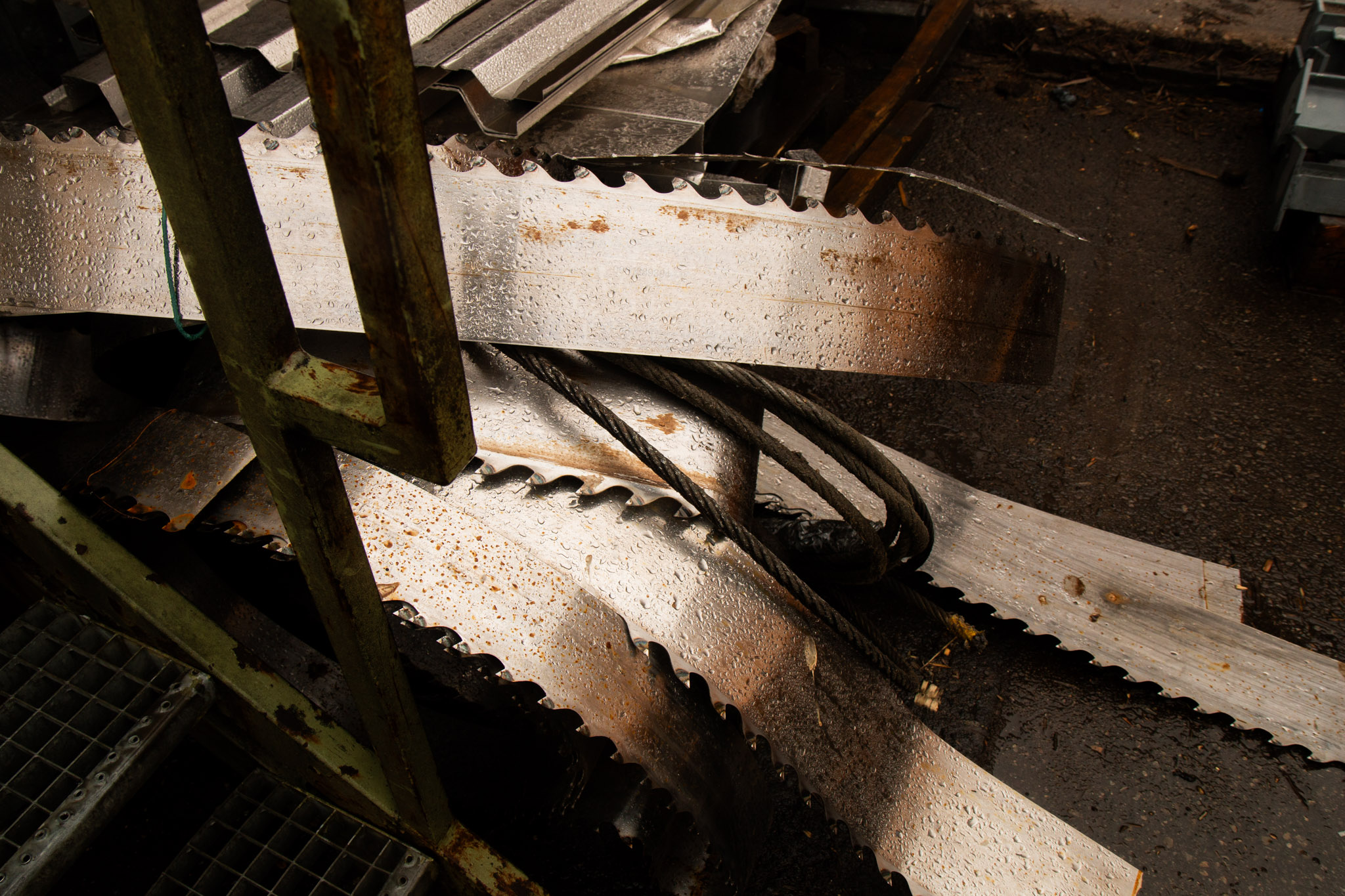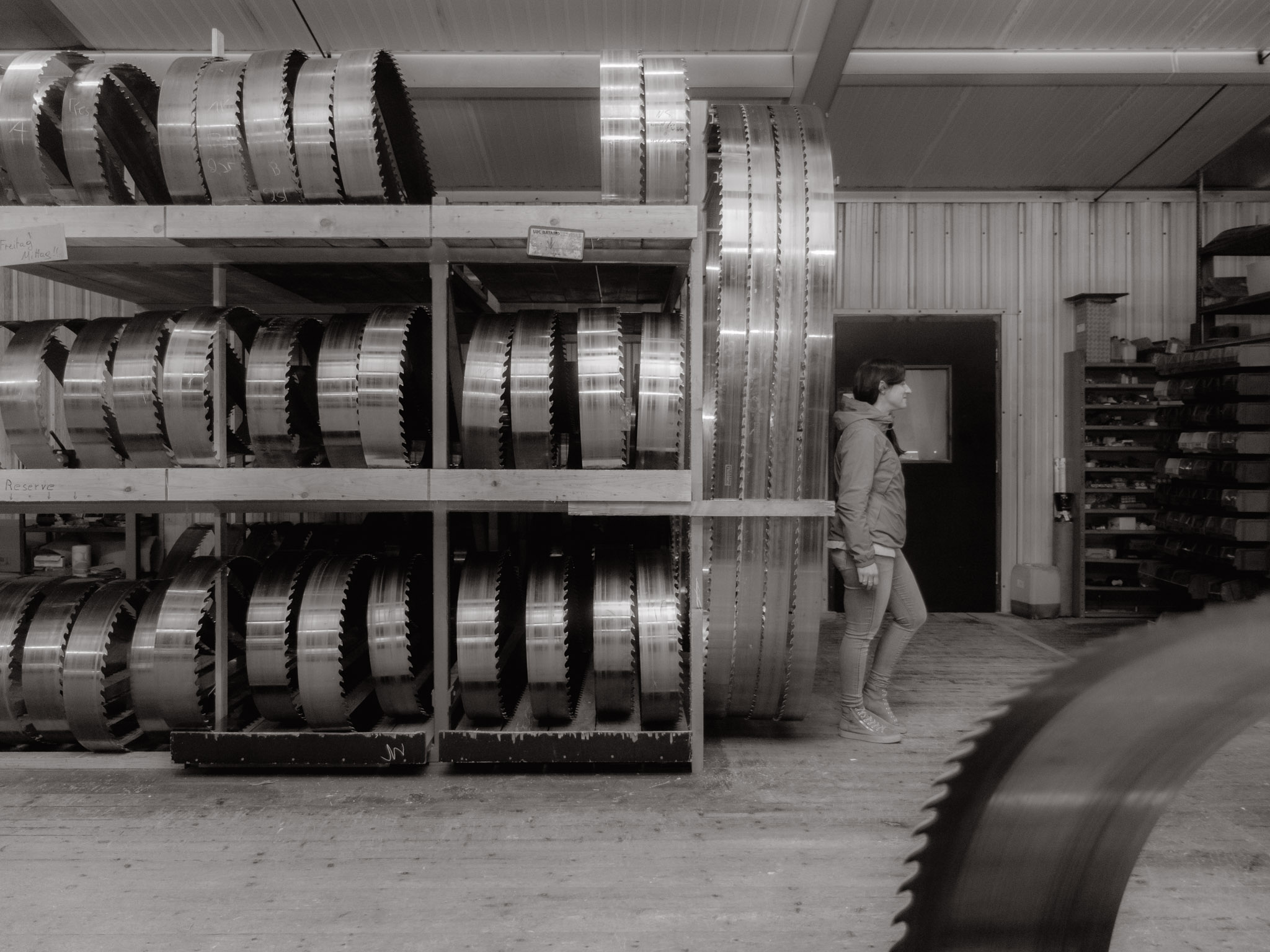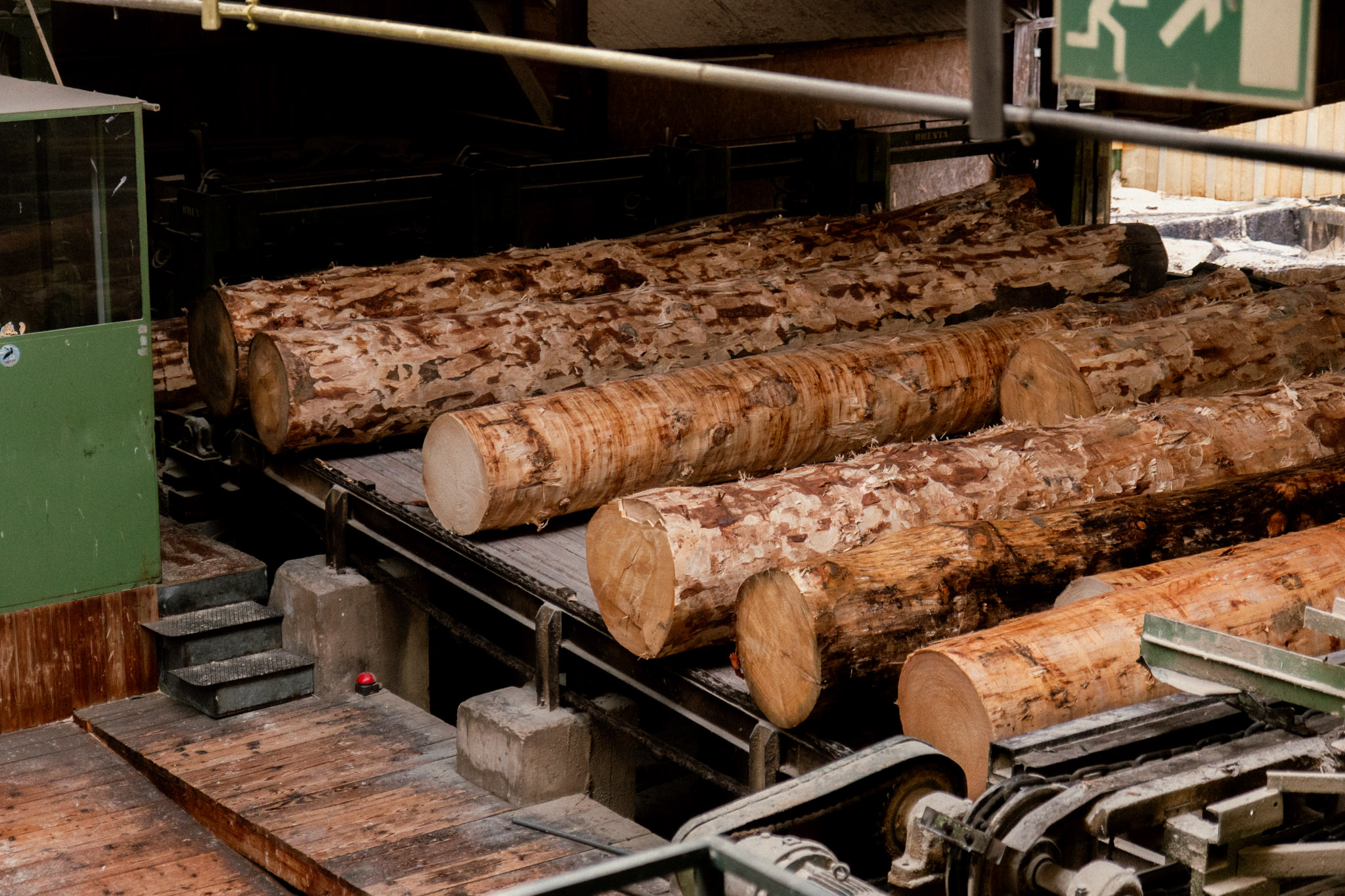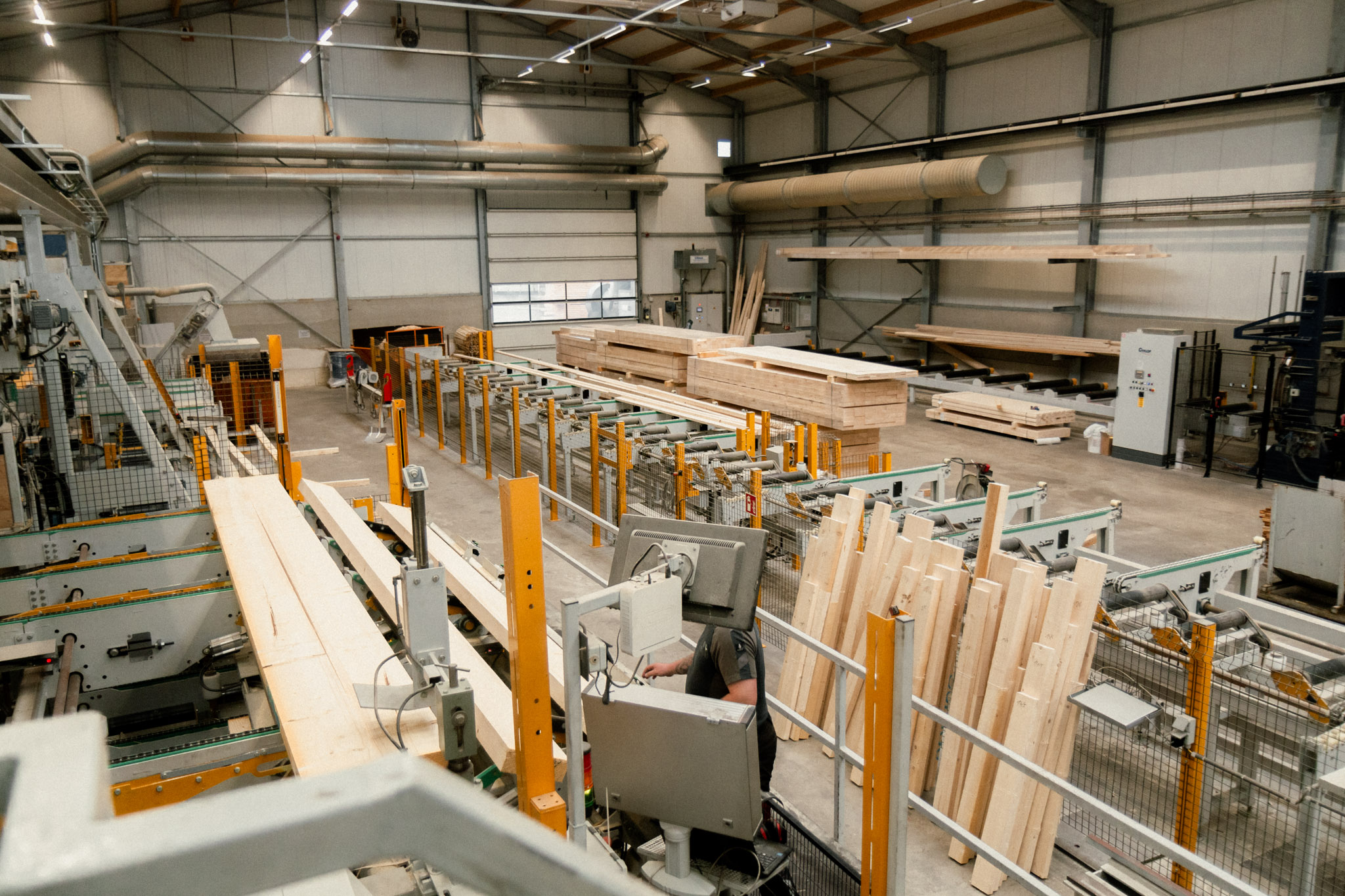Third-generation entrepreneur Corinne Brever is steering her family’s sawmill into the future—blending tradition, innovation, and sustainability in an increasingly uncertain world.
Behind her, a gold trophy catches the eye. Is it a memento from her decade captaining Luxembourg’s national women’s rugby team? “No,” she laughs, “that one’s from a go-karting team-building event!”
Corinne Brever is the third generation to lead Bois Brever, one of only two remaining major sawmills in Luxembourg. Founded by her grandfather in 1947 to supply timber for post-war reconstruction in a region scarred by the Battle of the Bulge, the Huldange-based company now employs around 40 people and reported a €10 million turnover in 2024. It specialises in processing spruce wood into construction timber, planed goods, and custom-made products for clients in Luxembourg, Belgium, Germany, and France.
“I never doubted that I wanted to take over the business,” says Brever with passion. But knowing the industry’s challenges, she was determined to gain higher education qualifications first. “You never know—is it going to work out? In the end, are you able to work with your family? And then you have the challenge—are you the person who can take over the business?”
After earning a business management degree in England and Ireland—where she discovered her passion for rugby—Corinne returned to Luxembourg in 2007 to join the family business. The first ten years were an intensive apprenticeship, learning everything from bookkeeping to operating machinery and sourcing timber in the forest. “It’s an ongoing learning process,” she says.
The Challenge of Succession
Transitioning leadership from her father to herself was one of the biggest hurdles Corinne has faced. “The world has changed so much—even in the 18 years since I joined. The way people work, the mentality of workers—everything is different,” she says. “For someone who has led a business for 40 or 50 years, it’s sometimes hard to let go and trust a new approach. But I do understand it.”
While she’s empathetic about the difficulty of passing the baton, Corinne is clear-eyed about her own future challenges: rising costs, evolving technologies, and increasing regulatory complexity. “Everything is bigger, faster, more expensive.”
A woman in a man’s world
Corinne could easily have pursued a career in public administration. But her passion for the family business runs deep. “It’s a proud moment every time I see a Brever Bois truck on the road,” she says.
In a sector still dominated by men, her confidence stands out. “I’m not afraid to be a woman in a man’s world,” she says. “Sometimes it’s the men who feel uncomfortable—unsure whether a woman belongs or understands their work. But I’ve always had people in the company who support me, and having my father beside me helped too.”
Corinne credits rugby with developing her leadership skills and confidence. She also cites her grandmother, Léonie, as another key influence. In the 1970s, petroleum company Esso approached Léonie to run a station near the border. The mother-of-four accepted, and the business flourished. “My grandmother was a very strong businesswoman. She was incredible, and she had this character—people just followed her,” says Corinne.
Innovation under pressure
That same resilience and boldness helped Corinne pilot one of the company’s biggest transformations: launching Luxembourg’s first solid structural timber (KVH) facility in 2017. With demand slowing for traditional timber products, the business needed to adapt or risk decline. “We had two options and we chose the riskier one,” she recalls.
“We had two options and we chose the riskier one”
It took nearly a decade to secure permissions and build the facility, in which the firm invested €5m, but the gamble paid off. Today, Brever Bois produces custom, non-standard lengths that larger manufacturers avoid—carving out a niche in the regional market. Corinne could not provide a ROI but said only that the sawmill would not have survived without the KVH line. The diversification won Bois Brever new customers, with in particular smaller companies appreciating the “on-demand” model, which helps reduce waste.
Other major investments in innovation at the facility include installing photovoltaic panels and digitising production processes to improve efficiency and sustainability.
Looking Ahead
Corinne is clear-eyed about the future. “I don’t want to become bigger,” she says. The site simply won’t allow for it—and besides, her focus is on quality, not volume.
“We focus on sustainability and being able to survive for the next years at least,” she explains. But survival is not guaranteed. The industry faces a slew of challenges: droughts, pests, diseases and storms are all affecting spruce trees—the company’s primary raw material—driving up prices.
Luxembourg’s building policy favours ecological construction, but Corinne points out the irony: “If you have to buy wood from very, very far away to build your ecological houses, they are no longer ecological.” She also serves on the Luxembourg Wood Cluster Advisory Board, helping shape the sector’s response to these issues.
Brever Bois recently weathered a crisis in the domestic construction market, thanks to its Belgian clients. But rising price competition continues to squeeze margins. For Corinne, the key to long-term resilience is ongoing diversification.
“We have our customer base that works well. But, you shouldn’t wait for things to go bad to start planning,” Corinne says. “We’re thinking ahead now—diversifying and adapting—because that’s what it takes to keep this legacy alive.”
Luxembourg timber trade at a glance
Exports: In 2022, Luxembourg exported $43.2 million worth of sawn wood, primarily to France, the Netherlands, Belgium, Germany, and Switzerland.
Imports: The country imported $33.3 million in sawn wood, mainly from Germany, Belgium, France, Cameroon, and Sweden.
This article was published in the 6th edition of Forbes Luxembourg magazine.
Read more articles:
Talkwalker Wins Major Social Listening Contract In France, Amid Controversy
Zidoun-Bossuyt Gallery Makes Art Shine
RAISE 2025 Recap: Europe’s AI Momentum, Challenges, And Opportunities


